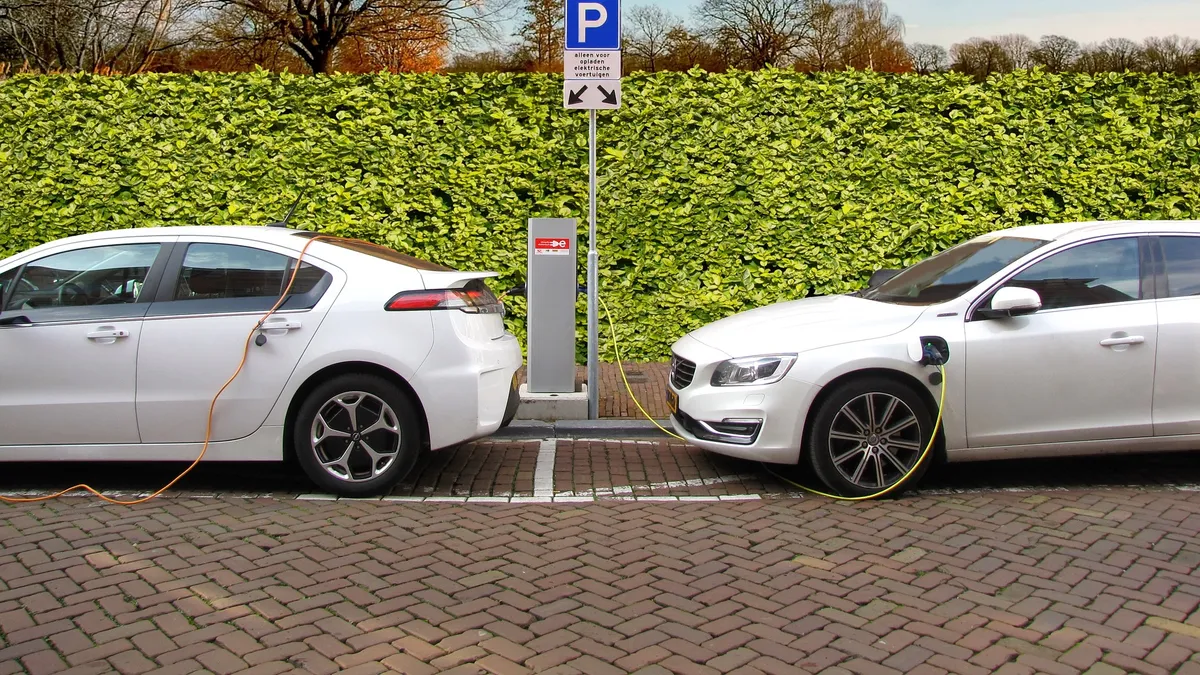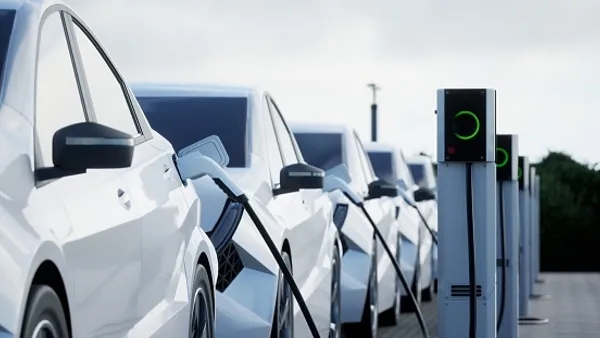Dive Brief:
- A new report from the Rocky Mountain Institute (RMI) calls for a national mandate in the United States on the purchase of electric vehicles (EVs), and for standards on the testing of autonomous vehicles (AVs). The report compares the mobility landscapes in China, India and the U.S., noting that more national leadership around mobility is needed in the U.S. to stay competitive.
- The report found that China and India have used nationwide mandates on EV sales to encourage more electrification, and have also invested heavily in infrastructure. In the U.S., mandates like California's Zero-Emission Vehicle (ZEV) Program may have influenced some other states, but not all, creating what report co-author Richard Li calls a "split market."
- Similarly, states have made a patchwork of rules conducive to testing AVs, but there remains no national standard, creating uncertainty for automakers and even encouraging them to carry out research and development in China, which again has a clearer national policy.
Dive Insight:
EVs are slowly gaining ground in the U.S., though the country lags behind China amid a growing need for more investment in charging infrastructure to encourage purchasing. The onus has been on states and cities to have mandates and other incentives for people to buy EVs, but it is self-selecting, so local governments can opt out.
Garrett Fitzgerald, a co-author of the report, noted the difference with China and India, where greater EV adoption is encouraged from both central governments. India, which has a similar federal system to the U.S., has set the tone for electrification through strong national leadership.
"There can be signals sent by the central government to ensure that any state-level policy meets a consistent framework and a consistent set of ambitions," Fitzgerald told Smart Cities Dive.
Arizona and Utah are states that have looked to foster AV testing and deployment, but Li said that has created a "patchwork" of state regulations, meaning developers do not have clear guidelines, especially as rules change across state lines. Congress tried to tackle this problem with national legislation, although it stalled in the last session and is being revived.
Members of the U.S. House Energy and Commerce Committee, which wrote AV legislation that passed the full House last year, have previously raised concerns about that patchwork effect, and that China could move ahead with its strong central planning in that area. Fitzgerald added that national laws help create certainty for automakers.
"Having a consistent signal from the government can create confidence in the market that they're not going to run into some roadblocks later," he said.
Fitzgerald said that for EVs and AVs, national policy is needed for different reasons, but that it will help with congestion and pollution issues, and ensure more equitable adoption.
"In some cases, policy is required to accelerate the adoption, but in other cases policy is required to ensure that when adoption happens, it happens in a way that's best for society rather than just benefiting a smaller subset of society," he said.
















